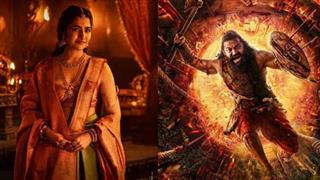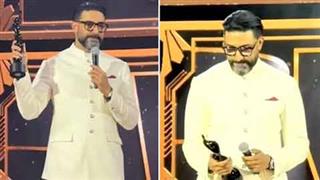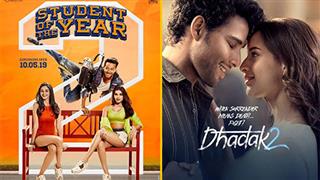Asha Bhosle, singer
The first time I met him, we were both young and just starting out. When I heard him sing live a few times at that point, I used to be speechless.
You could be at your emotional worst, and his voice would make you feel good. He has this velvety quality to his voice that can never ever be replaced.
Jagjit was a very warm human being, and he continued to be so even after the sudden death of his son.
It's perhaps that emotional trauma that helped him write such good music. When his son passed away, I met Jagjit saab at his house.
He said to me with a smile, "Ashaji, this is part and parcel of life. We cannot do anything about it." He never cried.
I was very surprised at how well he was handling the situation. Since then, we have been very close family friends.
I would never let go of an opportunity to work with him. I remember once I was supposed to record a song with him, but because of some misunderstanding I couldn't.
I felt really bad at that point and I was very upset with the people who were responsible for it. But even then Jagjit saab would call me always if he thought there was a song that would suit my voice.
The great thing about him was that he was very frank and he would never false praise me or anyone else.
Nevertheless, I have sung many songs for him, and I must say there can never ever be anyone who has an understanding of ghazal music in India as much as him.
Pandit Jasraj, singer
 When I think of Jagjit, all I think of is his song Ahista Ahista. In 1980, when I was in Poland, I used to spend nights only listening to this one song.
When I think of Jagjit, all I think of is his song Ahista Ahista. In 1980, when I was in Poland, I used to spend nights only listening to this one song. Not everyone is as gifted as he was, and I still think he had a lot more to give to the world.
There is not a single Indian musician who hasn't heard his compositions, because everyone had their own reasons to listen to Jagjit Singh.
I used to listen to him because his voice made me feel peaceful. Composing and singing ghazals is an art and Jagjit took it to another level.
There was a whole new wave in semi-classical sangeet because of him. I won't deny that in the past few years, ghazal music in India seems to be fading into oblivion.
But that is the case with any art form. Jagjit used to say that a ghazal has a life of its own. But even though he has passed away, his songs will live forever.
Mahesh Bhatt
The first thing that I remembered when I heard about his demise was the day when he was waiting downstairs at my building before the release of Arth.
When I asked him why he was waiting there, he said that he had seen the rough cut of the film and felt that the film would become a landmark.
He said that he felt the music was not good enough and added, 'I wish I could match your passion and madness.'
I told him that this was a sign of a true artiste, who felt he had not given his best while everyone else thought otherwise.
I told him that the film would be remembered not just for the writing and the performances, but also his music. He had done a marvelous job in order to make it an extraordinary movie.
Jagjit, Kaifi Azmi saab and I were a trio. We'd go to Kaifi saab's house in Juhu and Jagjit would bring out his harmonium from his car.
In the lawn, Kaif saab would recite the lyrics and Jagjit would listen with all his heart. And then and there, he'd get into the process of composing.
He responded to a situation in a very here-and-now manner. I'd heard about art being effortless but with Jagjit, I saw it happen. He didn't struggle for tunes, they came to him like leaves to the trees.
Gulzar, lyricist
 I'm really sad at his sudden demise. It all happened in the last one week or so. I wasn't expecting such turn of events.
I'm really sad at his sudden demise. It all happened in the last one week or so. I wasn't expecting such turn of events.
Around 12 days ago, we were working on some compositions of Mizra Ghalib. I was going to read Ghalib's letters and Jagjit was working on their compositions.
We were planning to bring out a new album. It was Saleem Aarif saab's concept and HMV was going to release it. It's all left unfinished.
Not only work or album has been left in between, but a lot of other things are left incomplete.
Wo akela aadmi pure ghazal ke genre ko sambhale huye tha (that man had taken the responsibility of the entire ghazal genre on his shoulder).
I have seen him performing in front of the audience, interacting with them. He was working day and night. I feel he was over worked. He just celebrated his 70th birthday in Delhi.
Pandit Birju Maharaj was also there. He said he would complete 70 concerts this year. He was young at heart... he had the courage. Bas achaanak hi hua.
Javed Akhtar
My association with Jagjit Singh has been for about 30 years if not more. We did Saath-Saath in 1981, in which he sang songs like Tumko dekha toh yeh khayaal aaya, Yeh tera ghar yeh mera ghar.
Over the years we became friends and did two albums together, Silsiley and Soz, besides participating in many programmes together.
Jagjit was also very active in the copyright amendment and we'd often go to Delhi together, to meet the concerned ministry and parliamentarians.
He was working very hard on this issue and when it's in its last leg, he's not there to see its conclusion.
 I heard Jagjit's voice for the first time in my life in 1976, he was introduced to me as a voice by Amitabh Bachchan. On a Sunday afternoon, Amitabh brought out an LP and said I must listen to this voice.
I heard Jagjit's voice for the first time in my life in 1976, he was introduced to me as a voice by Amitabh Bachchan. On a Sunday afternoon, Amitabh brought out an LP and said I must listen to this voice.
The song, Baat niklegi to door talak jaayegi, seems rather prophetic when I look back at that day. If you go to any country, where people understand Hindi and Urdu, you will meet Jagjit lovers.
Considering that 90 per cent of the music popular with the listeners is film music, Jagjit made a place for himself and stayed there for such a long time.
This achievement is unprecedented and unrepeated. For almost three decades, Jagjit remained where he started - at the top.
That's a miracle with him. It may sound cliched, but in Jagjit's case it is true... That an era has ended with him.



















